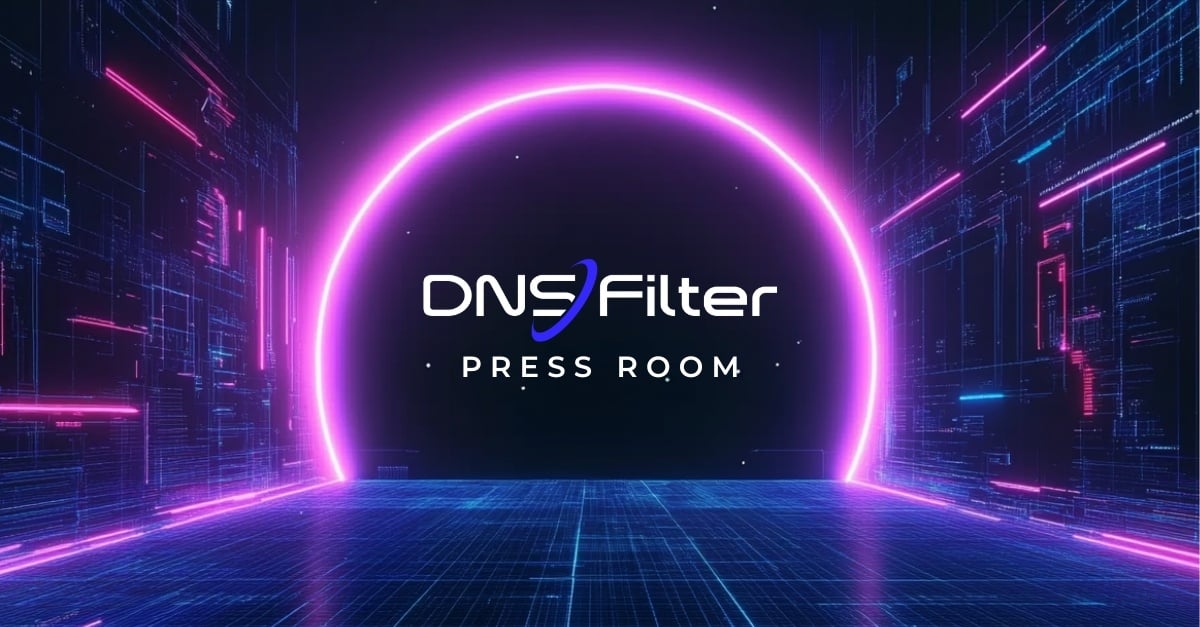DNSFilter Press Room
Old Tricks, New Domains: Why Bad Actors Love DNS
New domains are just one way bad actors continue to take advantage of DNS for attacks. The good news? There are ways to fight back. Learn more on Dark Reading.

DNSFILTER IN THE NEWS
DNSFilter VP of Channel Sales Named to CRN's 2026 Channel Chiefs: CRN
GigaOm Radar for DNS Security SolutionsGigaOm
DNSFilter Partner IWF warns AI becoming ‘child sexual abuse machine’ adding to ‘dangerous’ record levels of online abuseIWF
The Expanding Role Of DNS In A Safer, Smarter InternetForbes
Delegation Versus Dumping in the Age of Agentic AIThe AI Journal
Lions, Tigers, and Polymorphic Malware – Oh My! Why DNS Filtering Has Become a Non-Negotiable for MSPs TodayMSSP Alerts
Announcing the Enterprise Security Tech 2025 Cybersecurity Top Innovation Award WinnersEnterprise Security Tech
CyberSLOP: Defending Your Organization From High-Volume AI ThreatsForbes
AI-driven threats set to reshape business security by 2026SecurityBrief
Protecting the Perimeter That No Longer Exists: DNSFilter's Approach to Modern DNS SecurityTolly
Seven Cybersecurity Predictions for 2026VM Blog
Cybercriminals have their eyes on job seekersIT Brew
Cybercriminals are stooping to a new low by targeting job seekers when the market is already bad: ‘Where’s the good sheep for the wolf to go attack?’Fortune
Why DNS Could Be the Best, Most Overlooked Cyber DefenseManufacturing.Net
LevelBlue to acquire Cybereason as autumn M&A activity kicks off!Cyber Sidekicks Podcast
In the Age of AI, Your Greatest Strength is Human: Why Emotional Intelligence is Non-NegotiableDice
8 Fundamentals to Get You Back to the Cybersecurity BasicsThe Channel Pro Network
The Cybersecurity Reality Check: Industry Leaders Share Critical Insights for Cybersecurity Awareness Month 2025VMBlog
Immune Systems And Insider Threats: The Zero Trust ParallelForbes
Weaponized Intelligence: Using AI to Fight AI in the Cybersecurity Arms Race | The Super SessionsInsight Jam
116 healthcare cybersecurity companies to know | 2025Becker's Health IT
Why domain-based attacks will continue to wreak havocCSO Online
MSPCentric Emerges to Address Vendors' PSA Integration ProblemChannel Futures
Meet DC's 2025 Tech TitansWashingtonian
Old Tricks, New Domains: Why Bad Actors Love DNSDark Reading
10 Best Web Content Filtering Solutions 2025GB Hackers
Fake "I’m not a robot" CAPTCHAs might cost you your bitcoinCybernews
Hackers Using Fake Captchas to Spread Lumma Stealer MalwareDecrypt
How Organizations Can Prepare For Machine Identity AttacksForbes
Are You Managing Your AI or Just Prompting It?Medium





